Media | Articles
2003–04 BMW M3 CSL: The M car peaked here
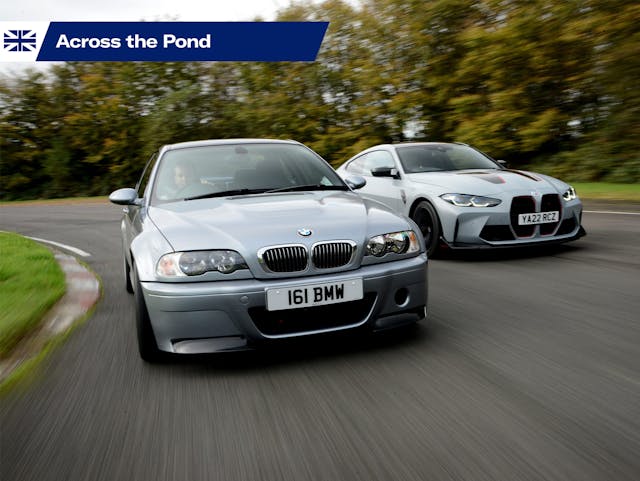
We approach the BMW M3 CSL with the objective of answering a seemingly simple question: is it the point at which BMW M cars reached its pinnacle?
Except, as you and I well know, that’s not an easy question to answer.
This story was published first on Hagerty UK—thus the British pounds, steering wheel on the opposite side, and so on. The photography comes from the latest episode of “The Driver’s Seat,” with Henry Catchpole. Watch it here. And for more Brit-centric feature stories, read our Across the Pond series.
How you answer it has to depend on how you view the German company’s M offshoot, and its mission. Does it exist to engineer homologation specials to keep BMW and M ahead of the chasing pack on a race track? Or is its purpose to put sufficient fire in the belly of everyday BMWs that they can mix it with the Ferraris and Porsches in the outside lane of a derestricted autobahn, lights on full move-aside setting and fingers poised at the paddles, ready to drop a gear or two and surge past all fast lane challengers?
Maybe you believe its point lies somewhere in the middle? That M’s task is to create cars that offer the thrilling feeling of driving a motorsport special while acknowledging that you’d like to take it the long way to the village store, on a Sunday morning to buy coffee beans, newspapers, and a cheeky finger of Fudge.
Marketplace
Buy and sell classics with confidence
In the summer of 2003, when the E46-generation M3 CSL went on sale, it really was the peak M car. The E39 generation, V-8-powered M5 had departed BMW showrooms, and the wicked E60, V-10 M5 was still a year away from howling toward its 8200rpm rev limit. The CSL was, for a fleeting moment, M’s flagship.
Specs: 2003–04 BMW M3 CSL
- Original MSRP: £58,455 (about $108,000 USD in 2004)
- Current value: £60,000 – £100,000 as per Hagerty Price Guide
- Volume: 1383 units worldwide (not in U.S.A.)
- Powertrain: 3.2-liter, 24-valve inline-six; six-speed sequential manual transmission
- Horsepower: 355 hp @ 7900 rpm
- Torque: 273 lb-ft @ 4900 rpm
- Layout: Rear-wheel-drive, two-door, four-passenger coupe
- Weight: 1385 kg (3053 pounds)
- 0-60 mph: 4.8 seconds
- Top Speed: 155 mph
What price exclusivity?
It may seem surprising now, but at the time Britain’s drivers didn’t exactly fall over themselves to get hold of one of the 500 M3 CSLs destined for the UK. Along with some quarters of the press, many were sceptical that the £58,455 CSL could justify its price hike over the £39,735 M3 when the power increase—an extra 17bhp—was so modest.
In 2003, cars like the CSL or Porsche 911 GT3 weren’t viewed as cast-iron investments, and with good reason; prices for used CSLs would go on to fall to less than £30,000 within a decade. It’s a far cry from today’s heated market. That scepticism may explain why BMW GB reduced its tally from 500 to 422 cars. Prospective buyers at the time recall dealers offering substantial discounts, on the quiet…
A plaque sits on the composite centre console. Curiously, each car wasn’t individually numbered. Instead, it reads: ‘BMW M3 CSL UK PRODUCTION 422 UNITS 01.07.2003 – 31.12.2003’ encouraging further cynicism. Well, if you’re a cynic like me.
Spot the difference
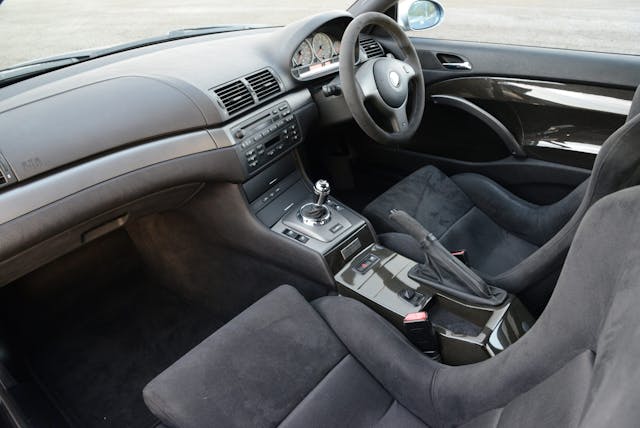
Now we’re in here, let’s take a good look around the cabin. As an owner of a regular E46 M3 Coupé, it’s fun to play a game of spot-the-difference, and note how the changes subtly alter the character of this car in more ways than meet the eye.
The large, Nappa-leather-clad electric seats (complete with electrically adjustable side bolsters) were thrown out, replaced by the Recaro-sourced fixed-back bucket seats with Alcantara and cloth trim, and the door cards ditched in favour of composite items with a simple grab handle and door bin. The wing mirror controls sit next to the raised handbrake and little things like the roll-top lidded cubby, adjustable armrest, and steering wheel controls for the audio system and cruise control are done away with entirely. All that remains on the suede-wrapped wheel is a solitary button for turning the stability system to its more relaxed, M setting.
These marginal weight savings add a sense of robustness to the CSL, as there is less to squeak and rattle, while the slim seat is as sturdy as an old oak and leaves precious little wiggle room.
In the back, there are thinner, bucket seats that can still be lowered for boot access, but the middle perch is taken up with a plastic console and the lap belt is gone. Clamber out and over the CSL-stamped scuff plates and the boot no longer features a boot release switch above the number plate (surely I get a bonus point for spotting that one?), the back windows are made from thinner glass, the tool kit has been forsaken and the battery under the boot floor is smaller.
But, as you probably know, we’re just getting started. Look at that roof. The carbon-fibre structure was the first time an M car featured such an arrangement, while the boot, front air dam and rear valance were fashioned from composites.
Heck, this commitment to ridding the coupé of unnecessary weight even went so far as to lighten the wiring harness, saving 1.5kg in the process. The end result was a kerbweight of 1385kg, which was 110kg less than a standard M3.
The engineers also got busy with the suspension. The track was widened, ride height lowered, there were shorter springs for the front, uprated and hollow anti-roll bars, a quicker steering rack, increased camber and, the big one, new Michelin Pilot Sport Cup tyres (on BBS alloys) which BMW would fit once customers had signed a disclaimer to say they understood that the part-slick rubber was a little, ahem, lively on a cold wet road.
Those Cup tyres weren’t just lively when cold. As I found out during track tests at the time of the CSL’s debut, the breakaway in fast corners could be abrupt enough that you’d make a mental note to check your life insurance and last will and testament.
The heart of the matter
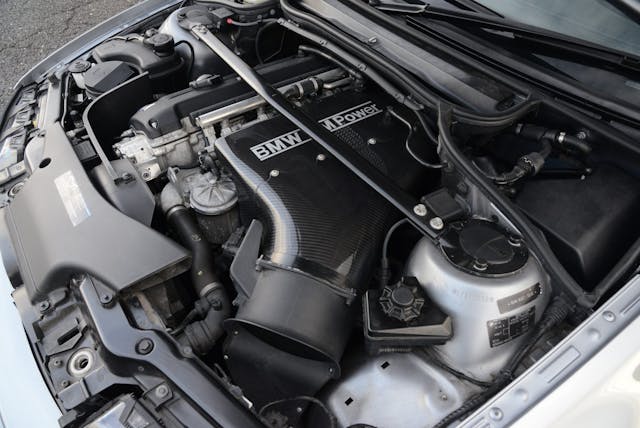
Then came the oily bits. Gerhard Richter was the engineer responsible for steering M GmbH, and reading contemporary interviews, you get the impression he spoke the language of the purist.
When asked about setting targets for the CSL, he told the American outlet Edmunds, “There are lots of targets but our main target is that the car must be fun to drive. Raw horsepower is not as important as how agile the car is and how the driver feels. The power-to-weight figure is the most important figure—more horsepower and lower weight equals more agility.”
With the weight reduction taken care of, attention turned to the S54, 3.2-litre straight-six engine, already acclaimed as one of the greats and voted International Engine of the Year in 2001, which also conquered its category of 3-to-4-litre engines not once, not twice, not even three times. It would take the title for five straight years.
The secret to improving upon perfection (hey, you knew I was going to be biased here, right?) can be found when you peer into the circular air intake at the foot of the front bumper. Pop the bonnet and you’ll see air is ducted up to the car’s now-famous carbon airbox. This huge chamber rammed more air into the engine, while a different camshaft and modified exhaust valves lent a hand, taking power to 355bhp at 7900rpm and torque to 273lb ft at 4900rpm.
It made, and still makes, one of the most glorious sounds ever produced by burning petrol.
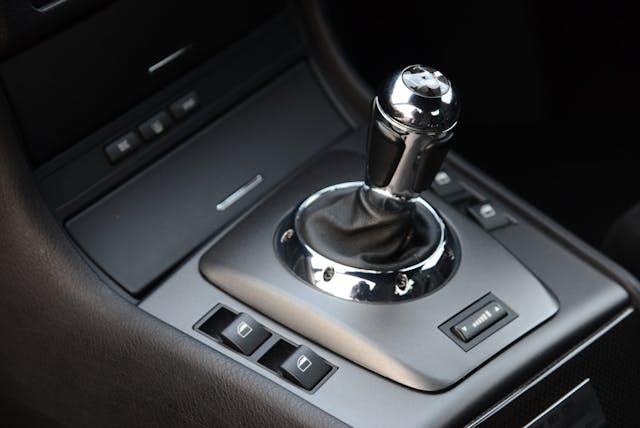
At this point, we must turn to the SMG II transmission with Drivelogic. Now, I’m not a betting man, but it’s likely that the fitment of this came about from an unhappy marriage of marketing and engineering. The marketeers wanted a story to sell—in this case a story of new technology—and the engineers wanted lap time speed. They got round the table, agreed on an SMG-only approach, and then attempted to prove their point by demolishing the regular M3’s lap time at the Nordschleife, with the CSL cutting it from 8 minutes 20 seconds to 7 minutes 50 seconds—happily, four seconds faster than a Porsche 911 GT3 (996).
As any review at the time would tell you, the SMG was brutal in the way it went about its business, yet while it’s possible to bemoan the decision to ditch a manual gearbox, there’s no denying it’s a significant part of the car’s character and serves to place it in time.
On the road and at the track
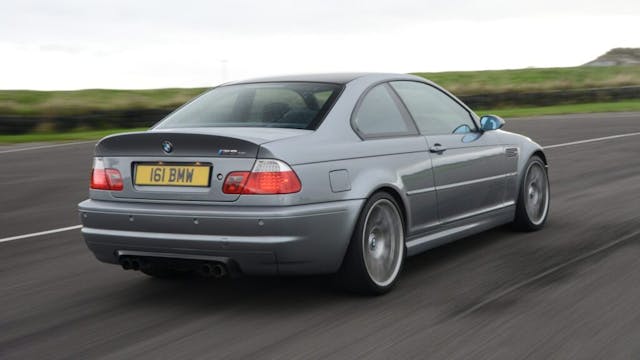
Having driven M3 CSLs before—including this very car several times—I know what to expect. Yet even so, after driving my M3 E46 Coupé—which I should stress has new OEM bushes, new OEM dampers, new Pirelli tyres, etc.—I can sense the gains from the off. And yes, there is a pang of regret that my own car will never feel like a CSL.
The steering is appreciably more direct, and in turn the front changes direction with a response rate that makes a standard car feel a bit sleepy. The ride yields less and the vertical movement is reduced, making it feel altogether more serious as it rolls down the road. And the induction wail of that airbox, which changes and builds in volume, starting from 2500rpm as a warble and taking on a piercing resonance that fills the cabin as you pile on the revs, is utterly divine—a short spell of listening to this would brighten even the darkest of moods.
But oh how I laugh at the SMG gearbox. In automatic operating mode it is too hesitant, too timid, like a learner driver who needs to toughen up. You can drive around its flaws and thunks, but it always feels like a piece of technology that’s still in development. Take charge of the shifts yourself, and the six-speed Getrag box operates with a ruthless efficiency, thumping home upshifts in the blink of an eye and perfecting exquisite-sounding rev-matched downshifts that stand up the hairs on the back of your neck.
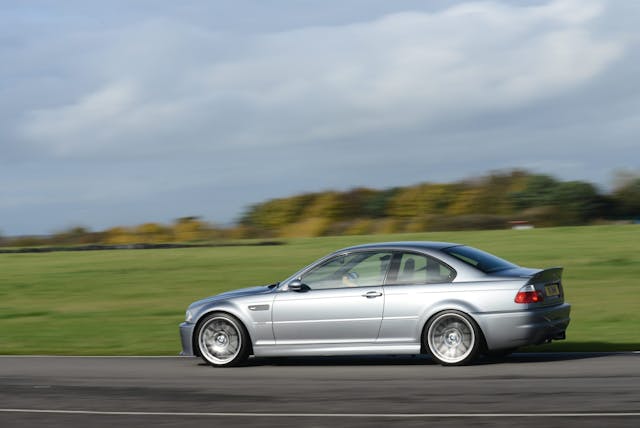
The straight-six is almost bullied by the airbox, is silky rasp drowned out by the attention-seeking induction wail, and I should imagine any owner of a CSL spends a large part of each journey with the windows ajar, soaking up the aural symphony.
The lack of body roll gives the CSL an immediacy that the regular M3 can’t match. And on the latest Michelin Pilot Sport 4S tyres, it’s even playful and forgiving on the road, indulging slides from damp roundabouts and well-sighted corners in a way that would have been a game of Russian roulette on the original Cup tyres.
At the track, it all makes perfect sense. The CSL has an agility, a purity, and a turn of speed that is nearly* all you could ever need to have a fast, satisfying session at a circuit of your choice. (*So long as you don’t punish the brakes too hard. They’re still not the best, despite gaining larger front discs over an M3.)
This is one of those rare cars where the driver can develop a deep, almost meaningful relationship with a machine, growing in confidence as you master its layout of engine up front, power to the back wheels, and work through the high levels of mechanical grip to play with the angles and encourage the tail to step out, indulging your inner hooligan whilst revelling in the feedback and confidence the CSL gives you as the tyres dance between grip and slip.
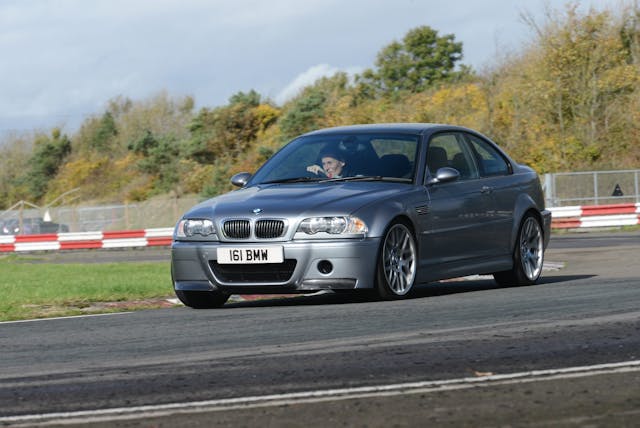
I’ll be first to admit my standard M3 E46 would feel a little clumsy by comparison, on a track. Earlier M3s, notably the E30, feel their age when you push them like this. Later M3s, such as the successive GTS editions, have delivered more speed but I don’t think they captured the thrill of driving as well as the CSL. Other acclaimed M models—we’re looking at you, M2—miss the mechanical connection you feel in the CSL.
In fact, having driven the latest M4 CSL, I don’t think any M car quite captures the magic of losing yourself in the pleasure of fast driving as well as the E46 CSL. So I may as well just come out and say it, and wait for the comments to flood in: the M3 CSL is peak M.
Check out the Hagerty Media homepage so you don’t miss a single story, or better yet, bookmark it.








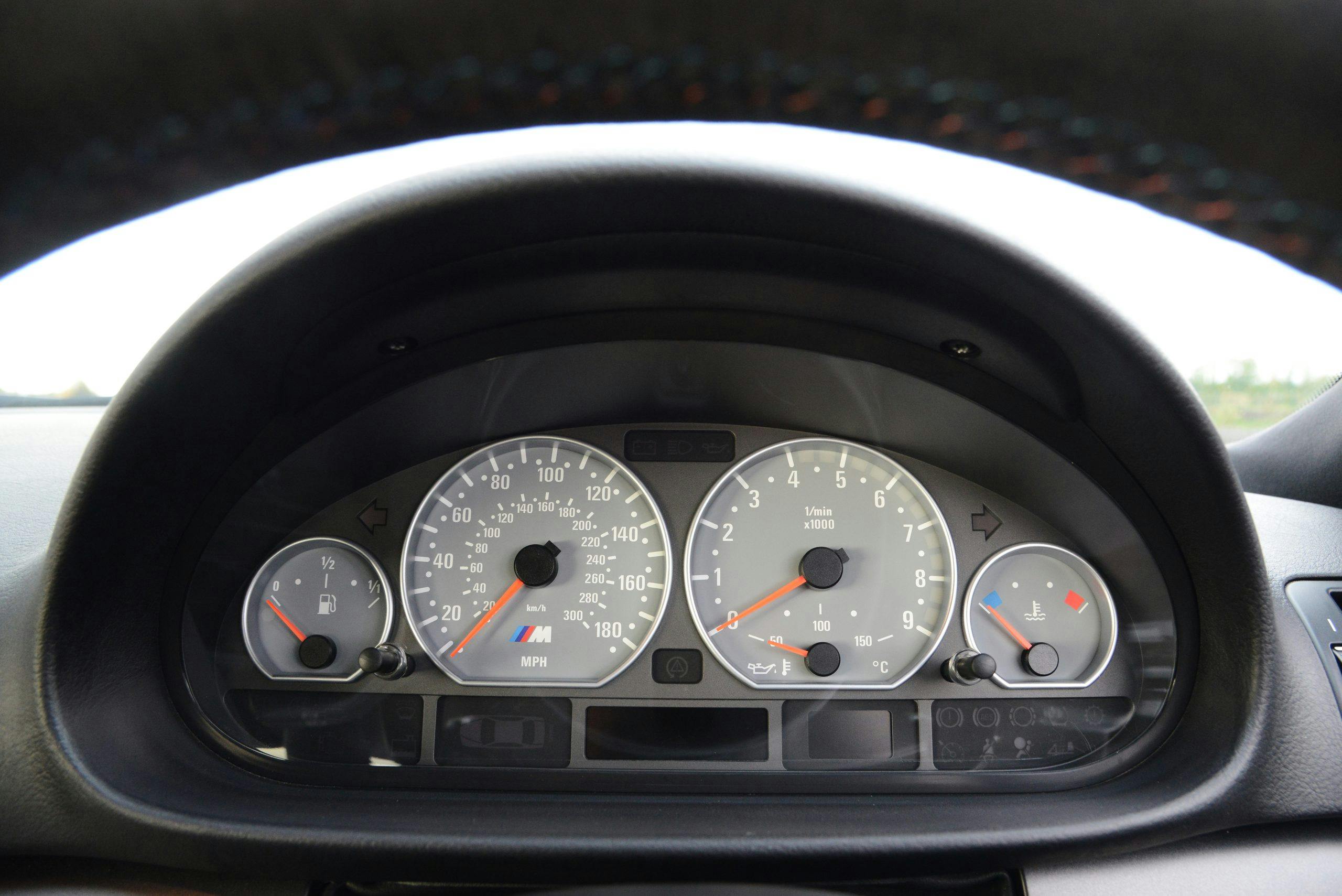
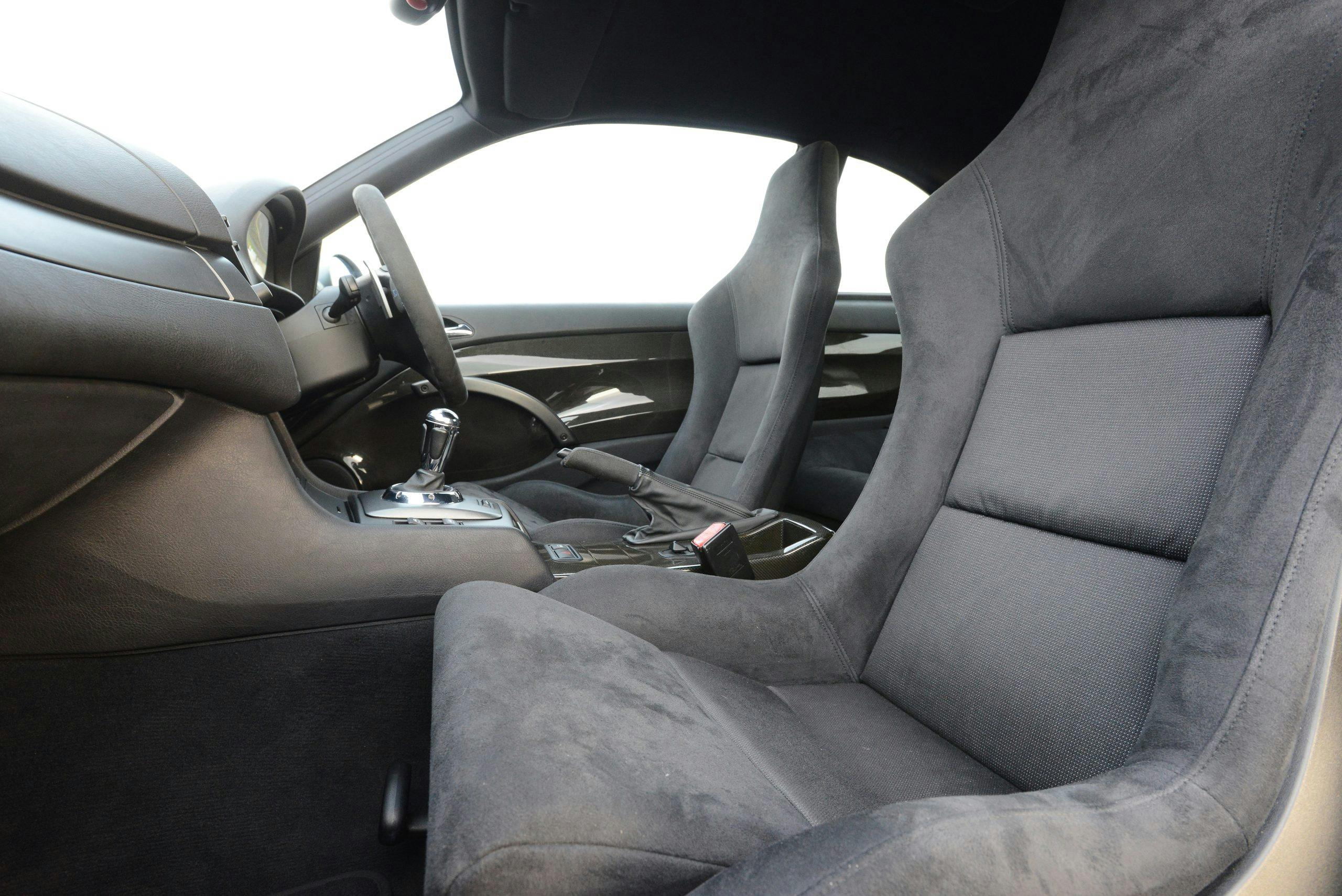
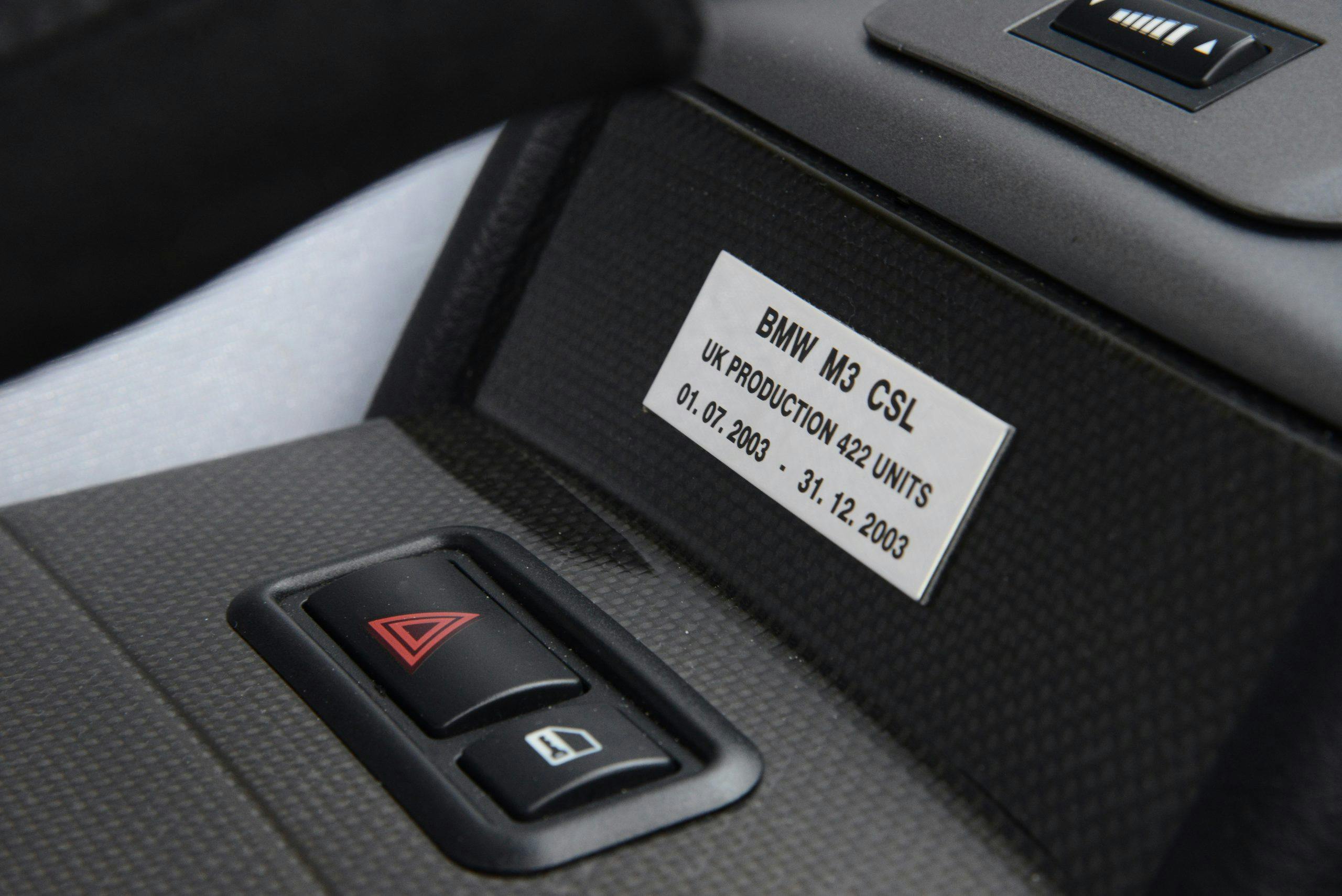
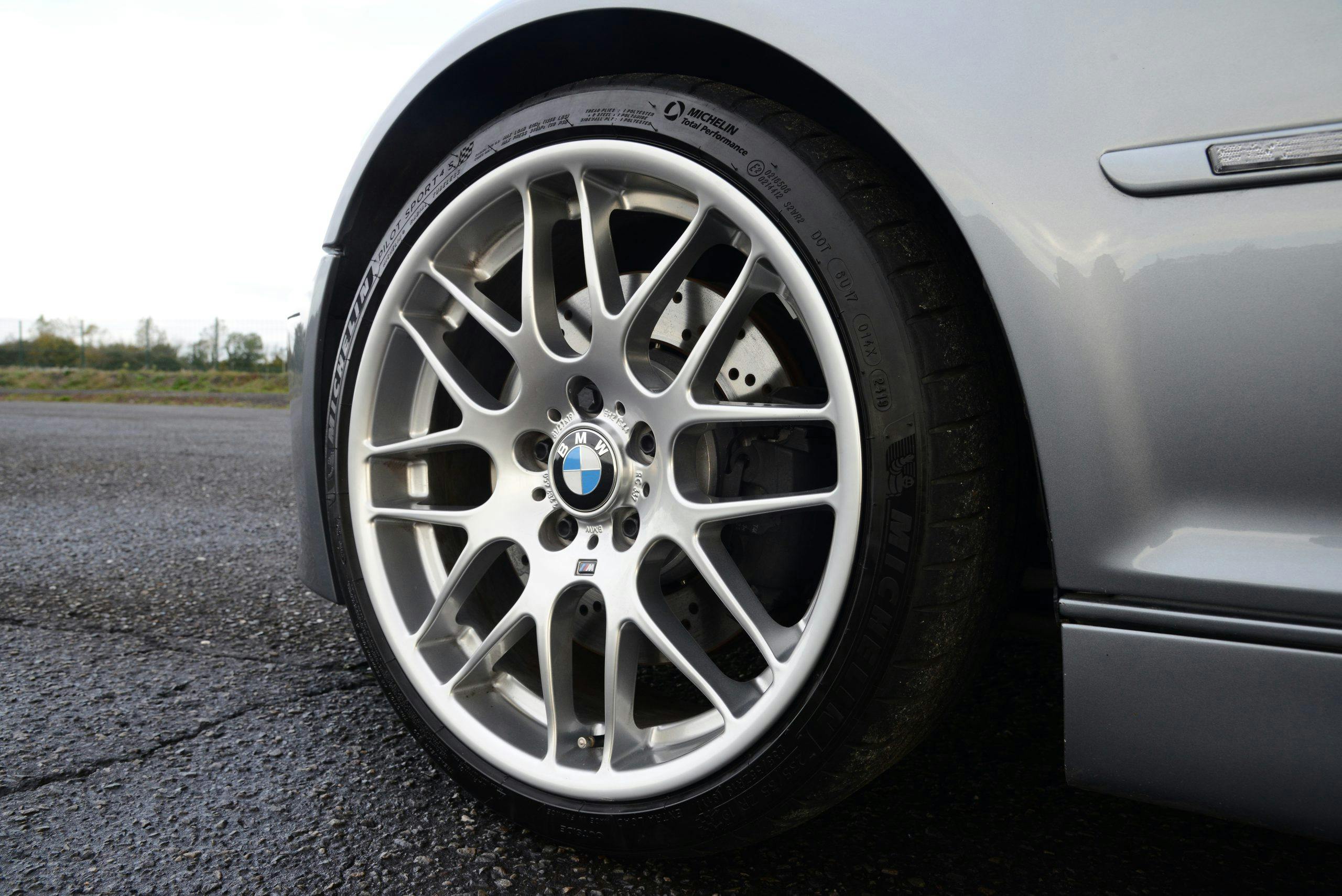
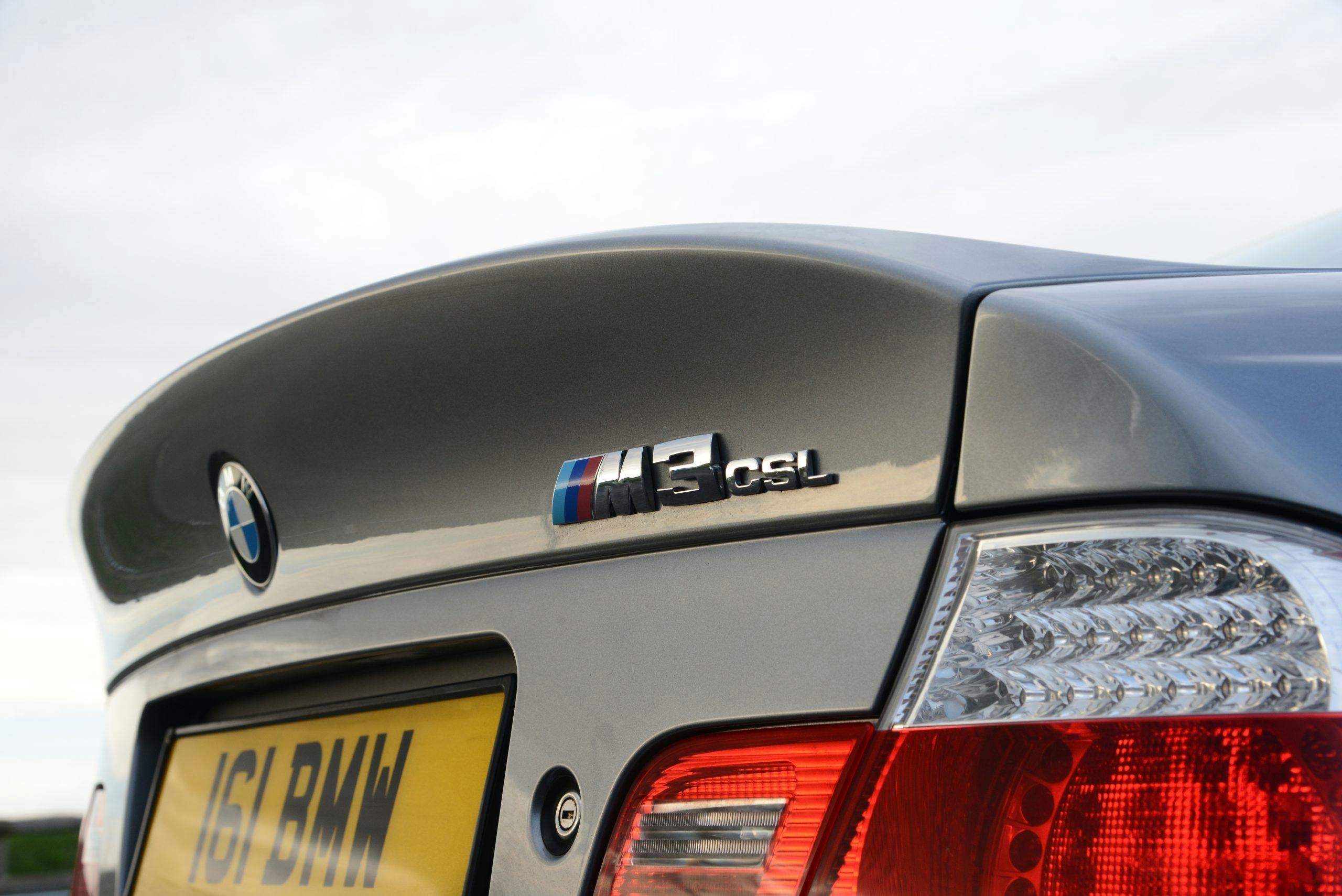
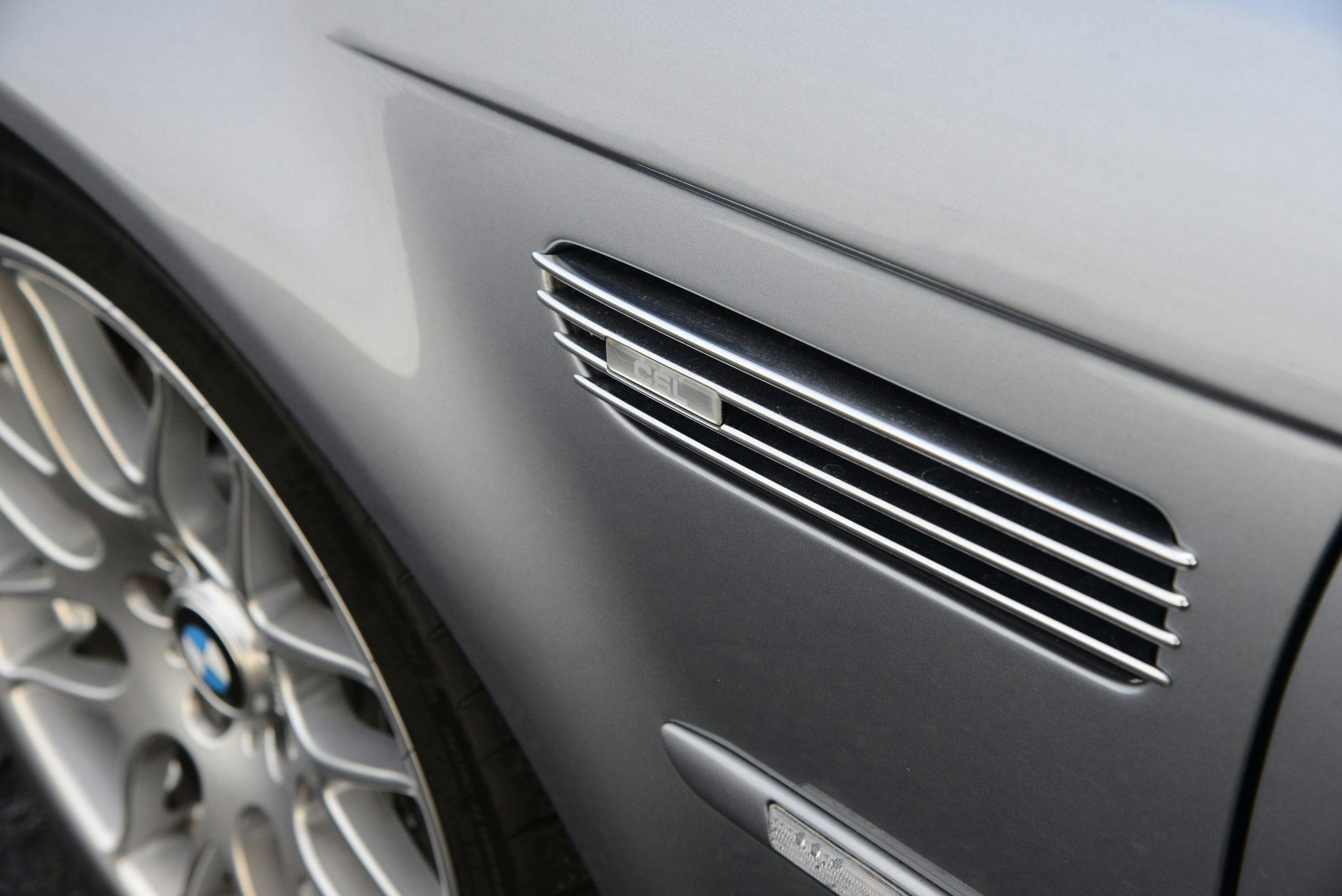
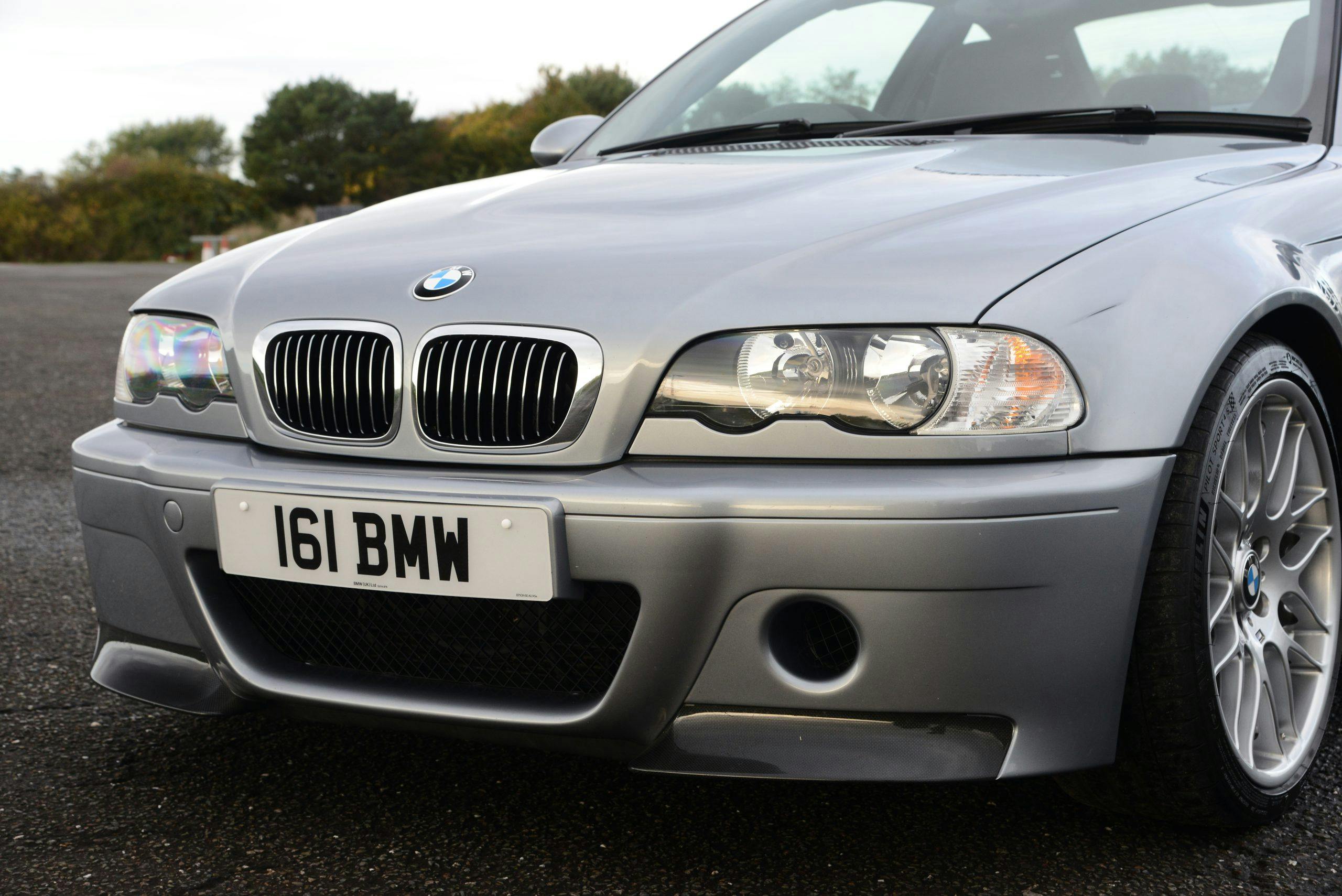
















What an awesome appraisal, thanks James! As an M3 CSL owner, it is always fantastic to read reviews that just “get it”, you can’t sum up this car with that often typed comment “shame it wasn’t a manual” or “great car, shame about the gearbox”. This truly is a car that just has that something else, more than the sum of it’s parts. I went from an E46 M3 that I loved, to the CSL. My first drive I remember shouting out “it really is as good as they say”.